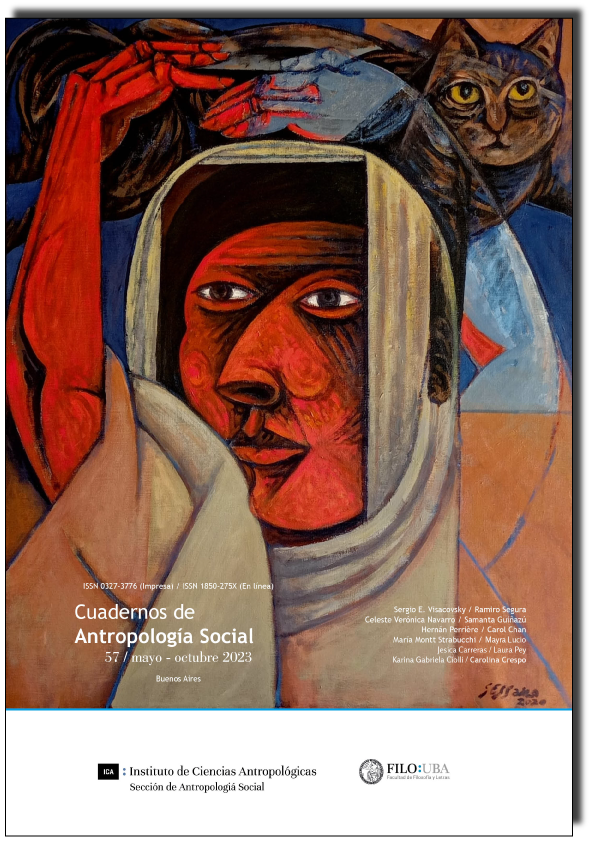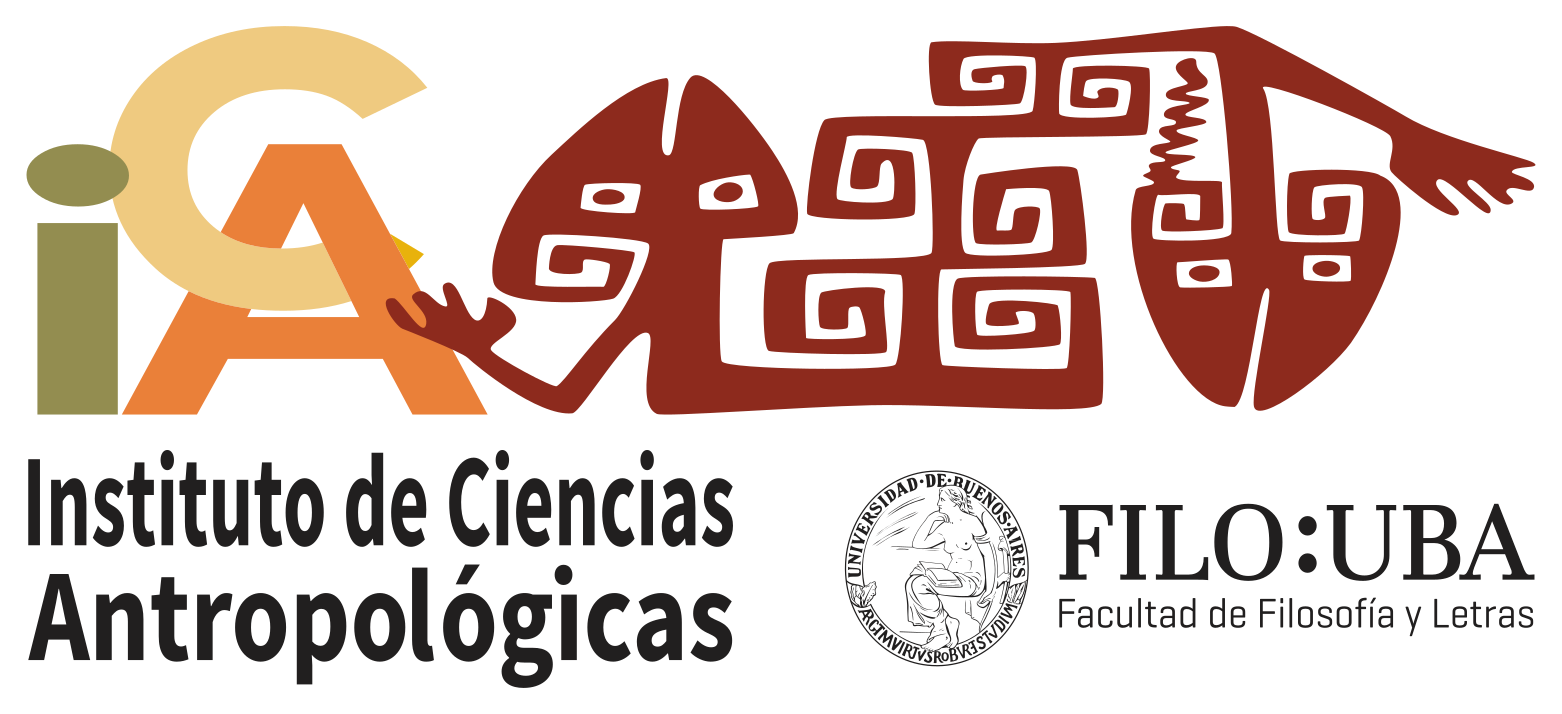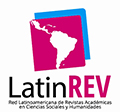The gaze of Lot’s wife or what anthropology has helped to understand the COVID-19 pandemic (and what it can help to problematize anthropology)
Abstract
My intention is to discuss how the exceptional conditions of the COVID-19 pandemic enabled both a better understanding of reality through the analytical resources of anthropology and the problematization of approaches and methods of our discipline that we take for granted. Based on fieldwork from a distance on different aspects of the pandemic, I analyze three topics that are closely related: 1. the use of different concepts of crisis and its consequences to understand the pandemic; 2. as a consequence of the pandemic crisis and the difficulties in carrying out ethnographic research in its classical form, the opportunity not only to imagine new modes of empirical inquiry, but also to problematize accepted ways of thinking and research; 3. the validity of the anthropological problem about thought, rationality, universalism and relativism, underlying the controversies about the existence and nature of the virus, the safety and efficacy of vaccines and other health policy measures.Downloads
References
Barrios, R. E. (2017). What does catastrophe reveal for whom? The anthropology of crises and disasters at the onset of the Anthropocene. Annual Review of Anthropology, 46, 151-166.
Berger, P. L. (1998). Conclusion: General Observations on Normative Conflicts and Mediation. En P.L. Berger (Eds.), The Limits of Social Cohesion (pp. 352-72). Boulder: Westview Press.
Bloch, M. (2005). Where did anthropology go? Or the need for ‘human nature’. En M.Bloch Essays on Cultural Transmission (pp.1-19). Oxford: Berg.
Bloch, M., & Kallinen, T. (2016). Interview with Maurice Bloch. Suomen Antropologi: Journal of the Finnish Anthropological Society, 41(4), 87-92. https://journal.fi/suomenantropologi/article/view/63055
Cardoso de Oliveira, R. y Ruben, G. R. (Edits.) (1995). Estilos de antropologia Campinas: Edi-tora da Unicamp.
Das, V. (1998). Specificities: Official narratives, rumour, and the social production of hate. Social Identities, 4(1), 109-130.
Douglas, M. (2001). Dealing with Uncertainty. Ethical Perspectives, 8(3), 145-155.
Ferrándiz, F. (2008). La etnografía como campo de minas: de las violencias cotidianas a los paisajes posbélicos. En M. Bullen y C. Diez (Eds.), Retos Teóricos y nuevas prácticas (pp. 89-115). Donostia: Ankulegi Antropologia Elkartea.
Gayford, M. (2011). John Martin: the Laing Gallery, Newcastle. The Guardian 15 de marzo.
Goffman, Erving (1971). Relations in public: microstudies of the public order. New York: Basic Books.
Guber, R. 2001. La etnografía. Método, campo y reflexividad. Bogotá: Grupo Editorial Norma.
Hay, C. (1995). Rethinking crisis: narratives of the new right and constructions of cri-sis. Rethinking Marxism, 8(2), 60-76.
Ingold, T. (2008). Anthropology is not ethnography. Proceedings of the British Academy, 154, 69-92.
Ingold, T. (2017). Anthropology contra ethnography. HAU: Journal of Ethnographic Theo-ry, 7(1), 21-26. https://www.journals.uchicago.edu/doi/full/10.14318/hau7.1.005
Koselleck, R. (2002). The practice of conceptual history: Timing history, spacing concepts. Stanford: Stanford University Press.
Lang, M. (2012). Capitalist apocalypse in the painting of John Martin and Gordon Cheung. Ekphrasis. Images, Cinema, Theory, Media, 8(2), 179-188.
Lomnitz-Adler, C. (2003). Times of crisis: historicity, sacrifice, and the spectacle of debacle in Mexico City. Public Culture, 15(1), 127-147.
Misztal, B. A. (2001). Normality and trust in Goffman's theory of interaction or-der. Sociological theory, 19(3), 312-324.
Murphy, A. (2022). Imagination in science. Philosophy Compass, 17 (6), 1-12. https://compass.onlinelibrary.wiley.com/doi/pdfdirect/10.1111/phc3.12836
Neiburg, F. (2020). Life, Economy, and Economic Emergencies. Sase Newsletter, 13. https://sase.org/newsletter-summer-2020/life-economy-and-economic-emergencies/
Peirano, M. G. (1991). Uma Antropologia No Plural: Três Experiências Contemporâneas. Bra-silia: Editora Universidade de Brasilia.
Robben, A. C.G.M. (2008). El trabajo de campo desde la dis¬tancia: enfrentando la paradoja de una antropología de la guerra contra el terror. En M. Bullen y C. Diez (Eds.), Retos teóri-cos y nuevas prácticas (pp. 55-88). Donostia: Ankulegi Antropologia Elkartea.
Robben, A.C.G.M. (2010). Ethnographic imagination at a dis¬tance: An introduction to the an-thropological study of the Iraq war. En A.C.G.M. Robben (Ed.), Iraq at a distan¬ce: What anthropologists can teach us about the war (pp. 1-23). Philadelphia: University of Penn-sylvania Press.
Roitman, J. (2014). Anti-crisis. Durham and London: Duke University Press.
Stocking, G. W. (2002 [1995]). Delimitando la antropología: reflexiones históricas acerca de las fronteras de una disciplina sin fronteras. Revista de antropología social, 11, 11-38. https://revistas.ucm.es/index.php/RASO/article/download/RASO0202110011A/9776
Visacovsky, S.E. (2011). Introducción. En S.E. Visacovsky (Ed.), Estados críticos: la experien-cia social de la calamidad (15-63). La Plata, Ediciones Al Margen.
Visacovsky, S. E. (2017). When Time Freezes: Socio-Anthropological Research on Social Cri-ses. Iberoamericana–Nordic Journal of Latin American and Caribbean Studies, 46(1), 6-16. https://iberoamericana.se/articles/10.16993/iberoamericana.103
Visacovsky, S. E. (2021). La investigación se abre camino: trabajo de campo etnográfico sobre la pandemia de COVID-19 en Buenos Aires en tiempos de incertidumbre. Cuestión Urba-na 10, 19-34. https://publicaciones.sociales.uba.ar/index.php/cuestionurbana/article/view/7052/5883
Walker, M. (2005). John Martin: Visionary Artist. Brontë Studies, 30(1), 53-60.
Willis, P. (2000). The Ethnographic Imagination. Cambridge: Polity Press.
Copyright (c) 2023 Sergio Eduardo Visacovsky

This work is licensed under a Creative Commons Attribution 4.0 International License.

Esta obra está bajo una Licencia Creative Commons Atribución 4.0 Internacional
Cuadernos de Antropología Social sostiene su compromiso con las políticas de Acceso Abierto a la información científica, al considerar que tanto las publicaciones científicas como las investigaciones financiadas con fondos públicos deben circular en Internet en forma libre, gratuita y sin restricciones.
Los contenidos y opiniones expresadas en los artículos publicados son de entera responsabilidad de sus autores.
Los autores/as que publiquen en esta revista aceptan las siguientes condiciones:
- Los autores/as conservan los derechos de autor y ceden a la revista el derecho de la primera publicación, bajo la licencia de atribución de Creative Commons, que permite a terceros utilizar lo publicado siempre que mencionen la autoría del trabajo y a la primera publicación en esta revista.
- Los autores/as pueden realizar otros acuerdos contractuales independientes y adicionales para la distribución no exclusiva de la versión del artículo publicado en esta revista (p. ej., incluirlo en un repositorio institucional o publicarlo en un libro) siempre que indiquen claramente que el trabajo se publicó por primera vez en esta revista.















